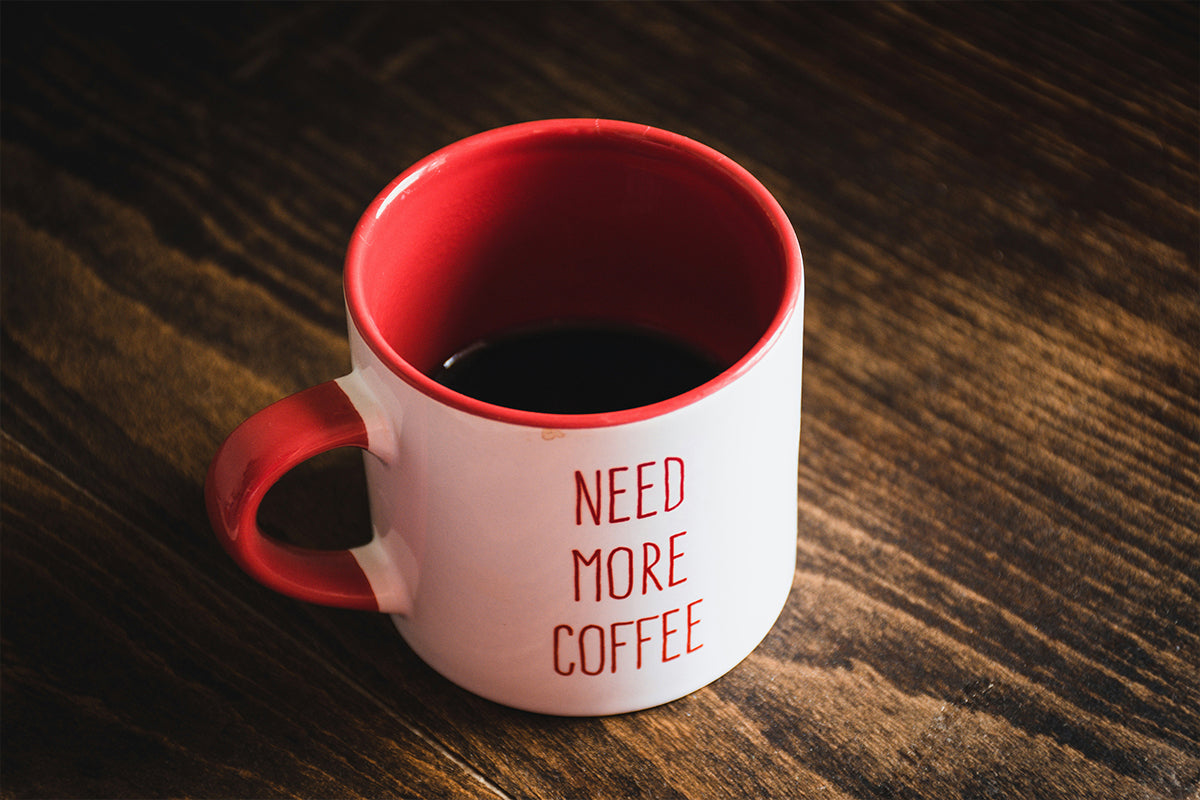You’ve probably ended up here because you have questions.
Does kombucha contain caffeine?
Why does kombucha contain caffeine?
How much caffeine is in kombucha?
And are there caffeine-free alternatives to kombucha?
So, we’re going to answer the lot so you can sip with the satisfaction that you know what’s going into your gut.
Your first question will be ‘Does Kombucha have caffeine in it’?
Yup, Kombucha contains caffeine! But not a right lot.
The three ingredients you need to brew a batch of booch are:
- Symbiotic cultures of bacteria and yeast (SCOBY!)
- Sugars for them to consume in the fermentation process
- Tea
Our Kombucha is made with black and green tea, which both naturally contain caffeine. It carries over a fragrant flavour for a lip-smacking pairing with the tang of Kombucha. However, the full caffeine content of the tea isn’t in the end product.
Before you start thinking you’re going to neck a can and be bouncing off the walls, or burning the midnight oil to keep you up all night, read on.
What even is caffeine?
Caffeine isn’t just the golden ticket to being a productive member of modern society. It’s so popular that we’re not only consuming thousands of flavours of latte, but we’re now slapping it on our scalps, eye bags, and sore muscles.
It’s a stimulant found in plants linked to increasing mental alertness. But caffeine doesn’t necessarily give you energy.
Instead, it blocks the effects of adenosine. Adenosine builds up throughout the day, making you sleepy. Caffeine binds to adensosine receptors, blocking themo stop adenosines effects on the brain. This is why you’ll get a crash when a high-caffeine beverage wears off.
Is caffeine bad for your gut health?
It depends on how you consume it!
Black tea, like we use in our booch, can reduce inflammation and prevent cellular damage.
Most of us know that after a morning espresso, you’ve got to dash to the bathroom. Caffeine activates contractions in your digestive tract and stimulates the production of stomach acid.
Getting your caffeine fix via energy drinks can reduce the activity and diversity of your gut bacteria, as with a sugar-loaded coffee or brew.
How much caffeine does Kombucha actually contain?
A can of kombucha isn’t going to be the kickstarter to your morning. Most adults rely on them to get through their admin.
The caffeine is metabolised during fermentation, so it only contains 1/3 of the amount of caffeine in at cup of tea, and even green tea can contain 75mg of caffeine a cup!
Our Classic Kombucha comes out at ~19mg of caffeine per can. Our CBD Kombucha contains ~18mg of caffeine per can. This makes it a great low-caffeine beverage with added goodness for your gut.
That’s 25% of a Starbucks mocha and still less than a Starbies Caramel Oat Milk Decaf Grande Latte which averages 20mg of caffeine.
Comparing the caffeine content of Kombucha with tea, coffee, soda, and energy drinks:
|
Beverage |
Size (ml) |
Caffeine (mg) |
| Brewed Coffee | 237 | 96 |
| Brewed Decaf | 237 | 2 |
| Espresso | 30 | 64 |
| Instant Coffee | 237 | 62 |
| Black Tea | 237 | 47 |
| Black Decaf Tea | 237 | 2 |
| Brewed Green Tea | 237 | 28 |
| Cola | 330 | 30.6 |
| Energy Drink | 237 | 71.9 |
| Energy Shot | 60 | 215 |
| Hip Pop Kombucha | 330 | 19 |
Source: Mayo Clinic
Can I drink Kombucha whilst pregnant?
Absolutely! The NHS recommends you stick to under 200mg a day so it’s still pregnancy-safe for thirsty mummas. You can read the full low-down here.
For any specific health concerns, please do consult your doctor.
Is it safe to give to my kids?
The average can of Coca-Cola lies at 34mg of caffeine, 100g of Milk Chocolate contains 20mg of caffeine, and dark chocolate 43mg! It’s safe to say you can give it to your children without them bouncing off the walls for hours on end.
Without the added sweeteners, low sugar (1/3 of a glass of natural orange juice), low-calories, PLUS the probiotic benefits, it’s a much healthier alternative than a regular can of pop.
Will it keep me up at night?
Nope! Kombucha won’t keep you awake if you drink it in the evening. Taking 20 minutes to kick in, it’s going to have a much less prominent effect than gobbling a few squares of dark chocolate after dinner.
Is there a caffeine-free alternative?
‘I can’t have coffee, AT ALL, how on earth am I supposed to reap the benefits to my gut health?’ We hear you. Don’t worry, our Living Soda and Gut-Lovin Soda’s aren’t brewed with tea, andhave zero caffeine, added fibre, and beneficial bacteria.
SO, to wrap it all up, Kombucha contains a small amount of caffeine, much less than tea and chocolate.
It’s packed with good bacteria that’ll help you digest and absorb the nutrients from your food. Zero sweeteners and chemical nasties, zero afternoon crash, zero compromise on epic flavours.
Heard enough? Check out the range here!
